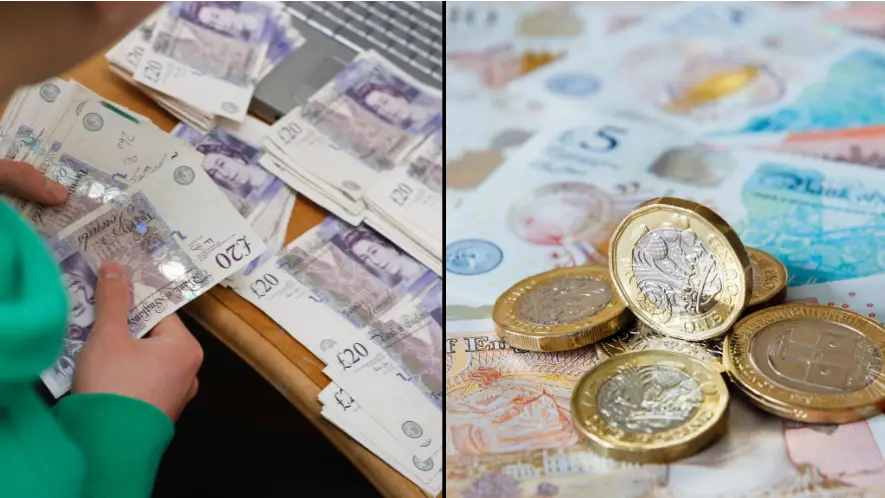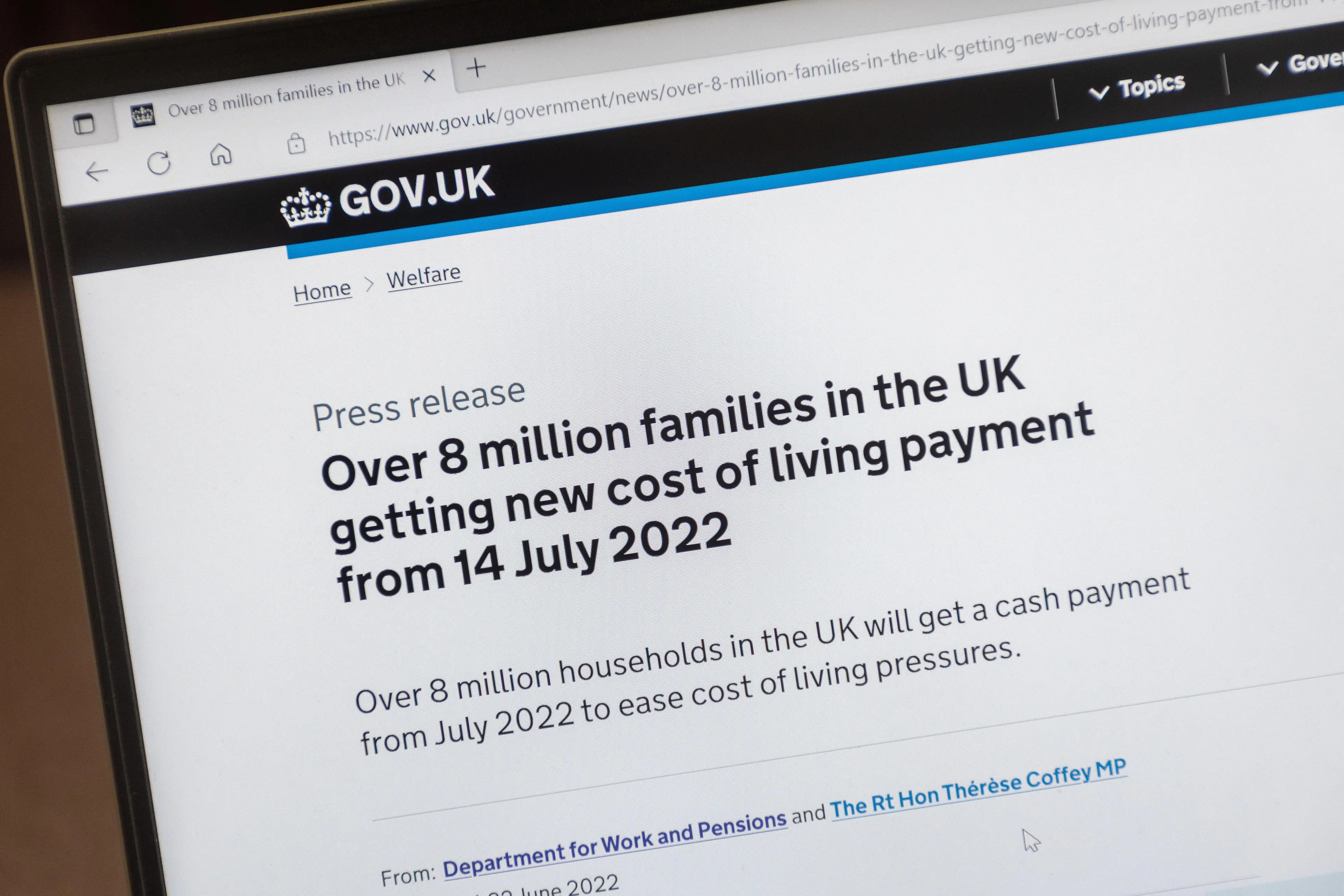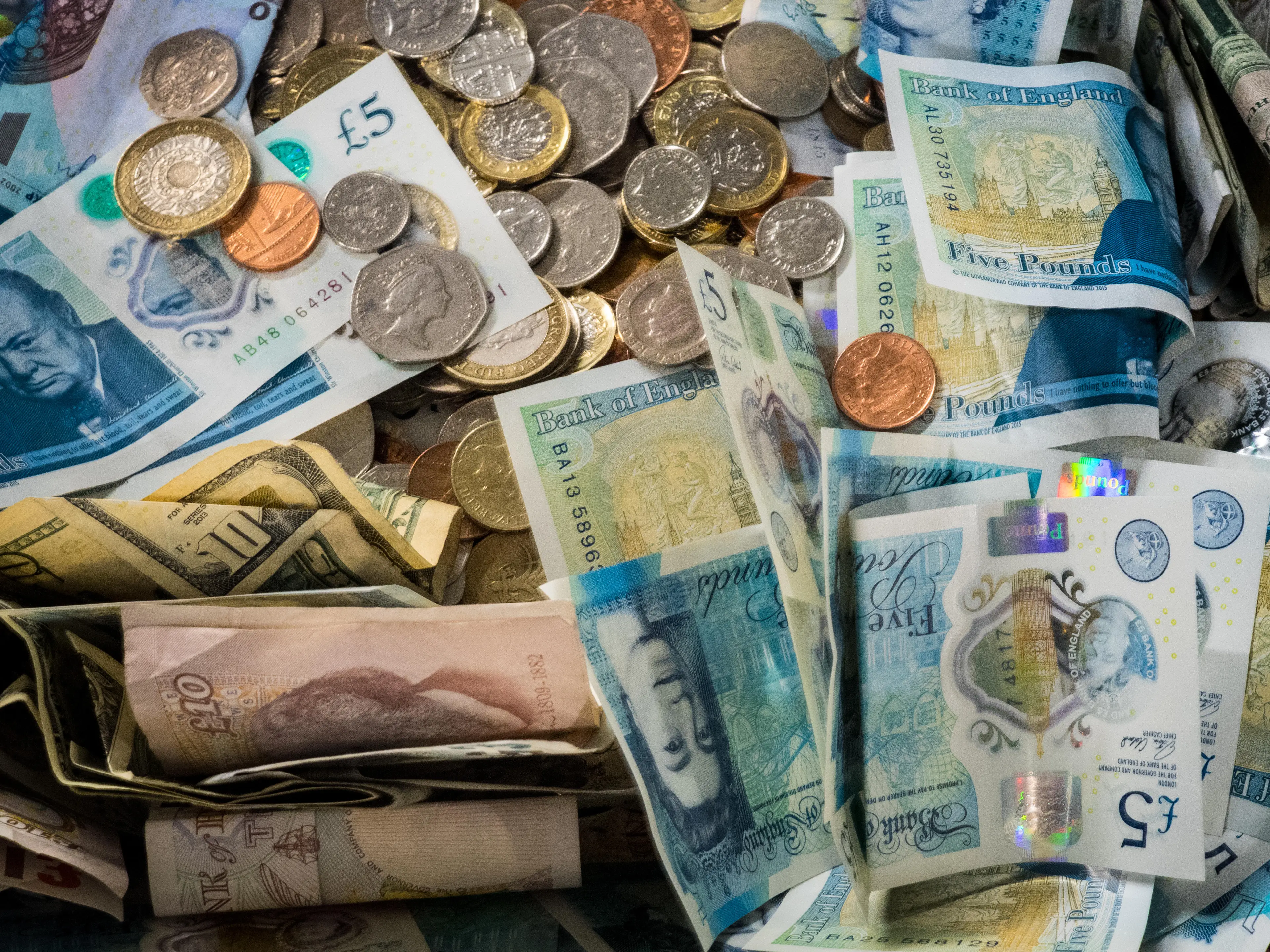
From tomorrow more than eight million households across the UK will receive the first instalment of a cost of living payment from the government.
The first payment totalling £326 will start being paid out to low-income households on benefits from 14 July onwards, a second payment of £324 will be sent out later on in the autumn.
Most people will get their first payment between 14 July and 31 July, and payments to millions of households are being staggered over a few weeks so that the system can cope.
You may be eligible to receive the money if you're on certain financial support such as Universal Credit, Jobseeker's Allowance, Employment and Support Allowance, Income Support, Pension Credit, Child Tax Credit or Working Credit.
Advert
If you're eligible to receive the payments then you don't need to put in an application, you'll be paid automatically and the money could appear in your account under the name 'DWP Cost of Living'.
Those receiving Tax Credits will be paid later, with their first chunk of money coming in the autumn and the second following along in the winter.
If you've not been paid within the timeframe you'd expect, which for most people in line for the payments would be by the end of the month, you should contact the Department of Work and Pensions to ask what's going on.
Some people who only recently became eligible for the payment may not get their first payment in July and a DWP spokesperson said they would get their money 'as soon as possible'.

You might be wondering why a £650 payment is being paid out in two unequal chunks, and the government has said this is so they can 'minimise fraud risks'.
A date for the second payment has yet to be announced and it is supposed to be coming 'soon', though the government is a little bit busy collapsing after mass resignations brought down Boris Johnson.
The DWP is still operating amidst the current political chaos so payments should proceed as normal, with the first ones arriving tomorrow.
Other payments designed to help the most vulnerable with the cost of living are on the way, with an extra £150 for disabled people and pensioners able to receive an additional £300.
Those payments will also be followed by the government's £400 grant to help deal with the skyrocketing cost of energy bills, which could rise by nearly 70 percent in October as the energy price cap rises.

The UK is looking at a 'very expensive winter' with the average household energy bill predicted to rise to more than £2,800 a year.
Economists have warned that the cost of living crisis is not going away any time soon with predictions of 'a rough couple of years ahead' being made by the Resolution Foundation.
The cost of living crisis is predicted to push around 1.3 million people into 'absolute poverty', of which about 500,000 are children.
For many of those plunged into poverty they will face the punishing choice between heating their homes and putting food on the table.
That situation that is only going to get worse as energy bills continue to rise and food prices keep climbing higher and higher.